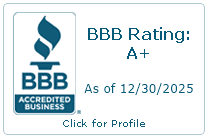Chlorination for Water Well Maintenance
As homeowners, we get used to regular tasks like replacing the batteries in smoke detectors, changing our furnace filter, and cleaning our gutters. We routinely perform these common responsibilities because we know the importance of preventative maintenance. However, even with all of our diligence, we can often overlook other items. For example, when was the last time you checked the quality of water that comes from your well? If you can’t even remember, you aren’t alone.
Well Water Testing & Disinfection
Regular water testing and disinfection are important elements of home maintenance. There are few things that are as important as your family’s water quality. Most of us never think about getting sick or even dying from drinking water. But in many developing countries around the world, diseases associated with dirty water kill more than 5 million people each year, according to the World Health Organization. Without proper disinfection procedures, outbreaks in the U.S. would significantly increase.
Chlorinating Your Water Well is Part of Maintaining it
In order to properly maintain your private water well, you need to consider regular chlorination. Chlorinating your well, also known as shock chlorination, kills bacteria and disease-causing organisms that can enter your well. This can happen after a flood or period of heavy rain, which causes surface water to enter your well or can just naturally occur over a period of time. It can also be caused by construction near a well or on the home’s plumbing system. Chlorinating a well eliminates other water quality problems, as well, like the presence of iron bacteria and hydrogen sulfide. These contaminants can give the water a bad taste and cause a rotten egg smell when the faucet is turned on.
When & Why to Test & Chlorinate Your Well
Many homeowners only consider the quality of their water when building a home and drilling a new well, or when they are purchasing a home with an existing water well. These are certainly important times to get you water tested, but well maintenance shouldn’t stop there. Bacteria in your water can cause minor digestive issues and even major illnesses if there are high concentrations of coliform or e.coli.
Most professional water tests check for fecal coliform and e.coli, but what should you do if the tests come back with unacceptable levels of these bacteria? That’s where chlorination comes in. Often called “shocking” your well, a proper chlorination is crucial to ensuring your family has safe, potable water. Chlorination is a process you can do yourself, but if you’re not comfortable attempting this, you should call a professional.
Professional Water Well Chlorination
Professional water well drilling and service companies chlorinate wells very frequently and efficiently. C&J Well Co has been drilling, servicing, and chlorinating private water wells for over 25 years. We can offer advice and helpful info on water testing, chlorination, and many other preventative maintenance measures. When we do bacteria testing, we send the water sample to an independent laboratory and notify you of the results. If it has unacceptable levels of bacteria, we have several water treatment options to mitigate the situation—most commonly well disinfection and additional testing.
What is Well Chlorination?
A chlorination treatment is basically what it sounds like—pouring the proper amount of chlorine bleach into your well and running it through your well system and indoor plumbing. Chlorine effectively kills a large variety of microbial waterborne pathogens, including those that can cause typhoid fever, dysentery, cholera and Legionnaires’ disease.
What Does Well Chlorination Do?
Chlorine is widely credited with virtually eliminating outbreaks of waterborne disease in the United States and other developed countries. Water has been treated for many centuries. First, it was boiled and filtered to improve the taste and appearance. Chlorine, one of 90 naturally occurring elements, was first used as a disinfectant in Europe and North America in the early part of last century. Since then, widespread epidemics of the most severe forms of diseases have become exceedingly rare in the U.S.
When chlorine is added to water, it forms a weak acid called hypochlorous acid. This acid is very proficient at killing bacteria such as salmonella and E. coli, and it also knocks out many viruses. Once inside the bacterium, the hypochlorous acid wreaks havoc by chemically interacting with proteins, causing them to lose their complex structures. The proteins’ functionality deteriorates, and the cell starts to die. Chlorine is also able to kill viruses, though the method it uses to kill viruses is less understood. Some experts think chlorine damages proteins inside virus cells, making viruses unable to get into human cells and cause infection.
Certain protozoa, however, such as cryptosporidium and giardia, which have protective outer shells, are very tolerant of chlorine. If your water has cryptosporidium and giardia, you may need to take extended measures, such as UV light bacteria removal.
Well Maintenance is Important
Preventative maintenance is crucial, especially when it comes to the water your family drinks and uses for cooking. Don’t be passive or ambivalent about the health of your private water well. Schedule regular bacteria testing and take measures to ensure the safety of your family—you won’t regret it!











